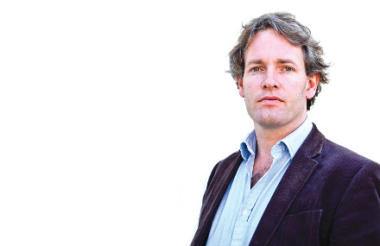The Civil Society Strategy has been described as a “more practical and muscular” version of David Cameron’s Big Society, by the Department of Digital, Culture, Media and Sport expert adviser on the government's project.
Speaking at NPC Ignites in London yesterday, Danny Kruger, expert adviser to DCMS, outlined some of the key parts of the government’s new Civil Society Strategy.
These included: “collaborative commissioning” between local authorities and charities; so-called ”citizen commissions” to feed into this commissioning process; a system of “investing in the social foundations of our society” which he referred to as “community capital” and establishing a “responsible business leadership programme” to try and influence the private sector into doing more for the voluntary sector.
In his talk, the former speechwriter for David Cameron and charity founder, said the new Civil Society strategy was “less a vision of the future, an ideal state, and more of a plan as to how to get there,” and said it was “really about the division of labour within our society”.
Shared Prosperity Funds to be 'place-based'
Kruger said he was currently leading a project at DCMS looking at Shared Prosperity Funds, the funding mechanism which the government envisions will replace the current EU Structural Funds, which are worth billions of pounds a year to the sector.
He said these new funds would likely be distributed through a place-based giving system.
“For me the discovery of place, this magical land where people actually live, is one of the most important breakthroughs of our time. Certainly for the government. Realising how absolutely essential geography is to way people live, want to live and to how things do and don’t work.”
Kruger also said that Local Enterprise Partnerships (LEPs) have “been reconfigured and redesigned over the last six months” and the government has drawn up a new plan to “enable LEPs to do their work better and, in particular, to harness the role of civil society in local economic planning”.
He also said that the government would continue looking to “grow volunteering and social commitment by ordinary people”; place “further emphasis on community organisers” and was “very much in favour of the whole social impact/social enterprise revolution” although he stressed that “payment-by-results social investment is not the answer to every challenge. Not the silver bullet that perhaps some people claimed”.
Civil society ‘not top of the agenda’
Kruger did admit that with the government still working towards getting some kind of Brexit deal with the European Union before the end of the month, the issues of the voluntary sector were “not top of the government’s agenda right now, as of course they should be”.
He did say however that these were “epic times” despite what he called “the often very depressing and short-term nature of our political debate and headlines on the front pages at the moment”. He also said it was a “really important moment to be shaping the debate in our sector and the policy agenda for it”.
DCMS envisions the voluntary sector playing a pivotal, post-Brexit role in Britain, according to Kruger. He said Britain will need “some old ideas like the importance of local power and association. Seeing everything through the lens of place. We need associations which are undergirded by values and virtues, a culture which says that it’s not all about me.”
He said the government recognises that “global Britain is rooted in local Britain” and that “we’re only going to grab the opportunities of this new era by reinventing forms of social solidarity which served us in the past”.
'It's not for government to tell charities what to do'
Kruger also told the audience that government's role is as a convener and commission but it should not be telling charities what to do.
"It’s not for government to determine or prescribe how charities and social enterprises do their work," he said.
He said that Julia Unwin's inquiry will report soon and he has been very persuaded by her argument that improving charity is a job for the charity sector.
"I do think running a charity is one of the hardest jobs, having done it and struggled to do it. Very, very difficult work. So this is no insult I hope that when I say there is huge need for improvement in the conduct of many charities."
|
Related Articles












